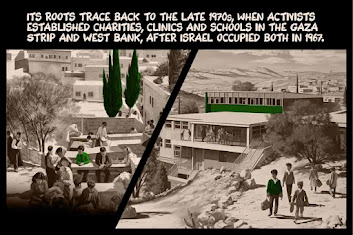The issue of Israel's occupation of Palestinian territories is a complex and deeply rooted geopolitical and historical matter with various perspectives and narratives. It's essential to note that different parties involved in this conflict have differing viewpoints and motivations. Here are some key factors often discussed regarding Israel's occupation of Palestine:
1. **Historical Context:** The conflict between Israelis and Palestinians has its roots in the late 19th and early 20th centuries, with the rise of Zionism (the Jewish national movement) and the subsequent establishment of the State of Israel in 1948. This led to the displacement of hundreds of thousands of Palestinians, creating a refugee crisis and laying the groundwork for ongoing tensions and disputes over land and resources.
2. **Security Concerns:** Israel cites security concerns as a primary reason for its occupation of certain Palestinian territories, particularly areas like the West Bank and Gaza Strip. The history of conflicts, including wars and acts of terrorism, has contributed to Israeli policies aimed at maintaining control over these territories for security purposes.
3. **Historical and Religious Connections:** For many Israelis, especially those with strong religious or historical ties to the land, areas like East Jerusalem (including the Old City with its religious sites) and the West Bank hold significant cultural, historical, and religious importance. This contributes to Israeli claims and efforts to assert control over these areas.
4. **Settlement Expansion:** Israeli settlements in the West Bank, which are considered illegal under international law by much of the international community, have been a major point of contention. Some Israelis and Israeli governments have supported the expansion of settlements as a way to solidify control over strategic areas and to establish facts on the ground, while Palestinians and many others view this as a barrier to peace and a violation of Palestinian rights.
5. **Political and Geopolitical Factors:** The Israeli-Palestinian conflict is intertwined with broader regional and international politics, including alliances, diplomatic efforts, and geopolitical interests. Various actors, including neighboring countries, global powers, and international organizations, play roles in shaping the dynamics of the conflict and influencing potential solutions.
It's important to recognize that perspectives on this issue vary widely, and achieving a lasting resolution requires addressing the complex historical, political, social, and humanitarian dimensions of the conflict.





No comments:
Post a Comment